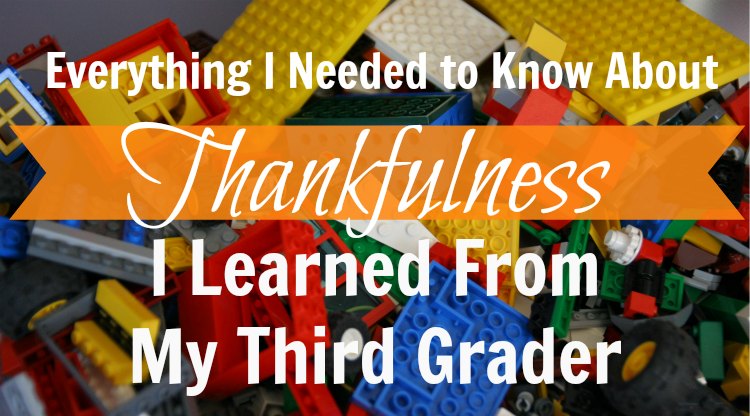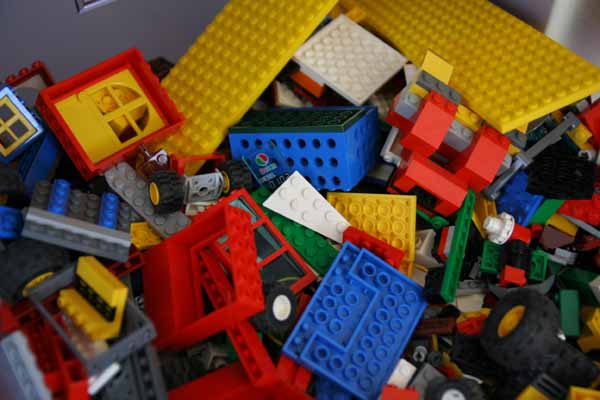When Big Brother was a little younger, he went through a phase in which he wanted stuff all the time. Legos… Bionicles… Bakugans… And in my utter frustration as a mom, I gave in more than I’m proud to admit. It all got to a point that where our spending was embarassing.
I started weaning us off of the regular trips to the toy aisle. I tried to explain to him that we don’t buy stuff every day, or week. At first, I tried to make the conversation about responsibility and self-discipline — not about money. The last thing I wanted to do was to create a poverty mentality, to instill in my little boy a fear of never having enough.
But in protecting him from paucity, I’d created an environment with no context of the value of the dollar, no sense of appreciation for the things we have.
I began to do the thing I had been avoiding: talking about money.
“A Bionicle costs fourteen dollars,” I told him.
So what?
I began talking about the value of different things. A box of chocolate milk at Starbucks costs two dollars. A ticket to Disneyland costs $80. A car costs $30,000. How as a girl, I had one Barbie, and I made extra clothes out of scraps of fabric and different colored tissues. How my parents had saved for things like a new house or college, and we should, too.
One day, while riding in the car, a question came from the backseat.
“Mommy, are we poor?”
My heart sank to that place where no mother wants to go. I had created the poverty mentality for my little boy.
I took a deep breath and hoped for the right words to express a balance of security and cautiousness.
“We’re not poor, but we’re not rich,” I began. “We can afford all the things we really need– like a place to live, food to eat, and clothes to wear. And we can buy some of the things we want, but not all of them. I don’t even buy all the things I want.”
Not bad for an extemporaneous oratory, I silently congratulated myself. Then I thought about the two dozen pairs of designer jeans in my closet and made a mental note to myself to slow down my own spending.
He grumbled something like kids do when you’re not really sure they’re really listening or if they’re just annoyed at you.
Eventually, the requests for Legos and Bakugans began to slow down. I assumed it was with age, after all by second or third grade, kids seem to develop real reasoning abilities.
Last Thanksgiving, Big Brother’s teacher assigned the class to write an essay about thankfulness. Being a third-grade boy, he didn’t tell me about it. I read it when he brought home his composition book at the end of the year. In it, he wrote:
I am thankful that we are not poor. So we can get things. Things that we need. Also things that we want. I like that. We are not rich. We are in the middle though. That is what I am thankful for.
And for that, I am thankful.



This is so beautiful, Grace, you made me choke-up. I think that the way you handled explaining “money” to your son was well said! Thank you for sharing. And I wish you and your familia a wonderfully delicious and happy Thanksgiving!!
~Virginia
Thank you, Virginia! Wishing a happy Thanksgiving to your family, too.
I love this piece. Beautifully written. I have a 3rd grade son too. He has no concept of money…loaned his sister way too much that he had saved up:)
Wonderful. I am working on a blog post right now about how to keep children grounded and away about gifts and receiving. Excellent post.
That’s so sweet he wrote that message. Your message to him resonated!
What a nice message. Hope you had a happy Thanksgiving.
What a beautiful post! I totally relate!